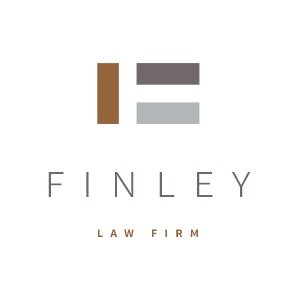Best Nonprofit & Charitable Organizations Lawyers in Des Moines
Share your needs with us, get contacted by law firms.
Free. Takes 2 min.
List of the best lawyers in Des Moines, United States
About Nonprofit & Charitable Organizations Law in Des Moines, United States
Nonprofit and charitable organizations play a vital role in the community of Des Moines, focusing on various causes including education, healthcare, environment, and social services. These organizations operate under a specific legal framework governed by both federal and state laws. In Des Moines, the establishment and management of nonprofits are regulated by the laws of Iowa, which provide the guidelines for incorporation, tax-exemption, governance, and compliance. Understanding these laws is crucial for successfully creating and sustaining a nonprofit entity.
Why You May Need a Lawyer
There are several scenarios in which individuals or organizations may require legal assistance in the realm of nonprofit and charitable organizations. Here are some common situations:
- Incorporating a nonprofit organization and ensuring compliance with registration requirements.
- Applying for tax-exempt status and understanding IRS regulations.
- Drafting and reviewing bylaws, policies, and other organizational documents.
- Navigating state compliance and annual filing requirements.
- Addressing issues related to fundraising, charitable solicitations, and donor agreements.
- Managing conflicts of interest within the organization.
- Understanding employment law as it pertains to nonprofit staff and volunteers.
- Handling audits, investigations, or disputes related to nonprofit operations.
Local Laws Overview
Nonprofits in Des Moines must adhere to Iowa state laws, which are tailored to support and regulate the functioning of nonprofit entities. Some key aspects include:
- Incorporation: Nonprofits must file articles of incorporation with the Iowa Secretary of State.
- Tax-Exemption: Organizations can apply for federal tax-exempt status through the IRS and are also required to obtain state tax-exemption.
- Governance: Iowa law mandates the formation of a board of directors to oversee operations and ensure adherence to bylaws.
- Reporting: Annual reports must be filed with the state, detailing financial information and continued eligibility for incorporation.
- Fundraising: Fundraising activities are regulated to prevent fraudulent practices, requiring certain disclosures and registrations.
Frequently Asked Questions
What is the process for starting a nonprofit organization in Des Moines?
The process involves choosing a name, appointing a board of directors, filing articles of incorporation with the Iowa Secretary of State, obtaining an Employer Identification Number (EIN), drafting bylaws, and applying for tax-exempt status with the IRS.
Do I need to register my nonprofit in Iowa if it's already incorporated in another state?
Yes, foreign nonprofits must register with the Iowa Secretary of State to legally operate in Des Moines.
How do I apply for tax-exempt status for my nonprofit?
Nonprofits must submit IRS Form 1023 or 1023-EZ for recognition of tax-exempt status under section 501(c)(3). State tax-exemption may also be necessary.
Are there legal requirements for nonprofit boards in Iowa?
Yes, Iowa law requires nonprofits to have a board of directors responsible for governance, with specific duties outlined in the bylaws.
What are the fundraising regulations for nonprofits in Des Moines?
Nonprofits must comply with the Iowa Charitable Solicitation Act, which requires registration and disclosure of certain information to donors.
How do I ensure compliance with local, state, and federal laws?
Regularly reviewing and updating organizational documents, staying informed on legal changes, and consulting with a nonprofit attorney can help ensure compliance.
Can my nonprofit lobby or engage in political activities?
Nonprofits can engage in limited lobbying but must adhere to certain restrictions. Political campaign activities, however, may jeopardize tax-exempt status.
What are the consequences of failing to file annual reports?
Failure to file annual reports can lead to administrative dissolution, loss of tax-exempt status, and penalties.
Is it mandatory to have insurance for my nonprofit?
While not mandatory, it is advisable for nonprofits to carry insurance policies such as general liability, property, and directors & officers insurance to protect against potential risks.
How can my nonprofit lose its tax-exempt status?
Nonprofits can lose tax-exempt status for reasons including significant private benefit to individuals, excessive lobbying, or engaging in prohibited political activities.
Additional Resources
Here are some resources to assist those seeking legal advice for nonprofit and charitable organizations:
- Iowa Secretary of State: Guidance on nonprofit incorporation and reporting requirements.
- Internal Revenue Service (IRS): Information on applying for and maintaining federal tax-exempt status.
- National Council of Nonprofits: Offers resources and advocacy for nonprofit organizations.
- Iowa Nonprofit Resource Center: Support for new and established nonprofits in Iowa.
Next Steps
If you require legal assistance in the realm of nonprofit and charitable organizations, here are some practical steps to follow:
- Identify the specific legal issue or question you need help with.
- Research and reach out to attorneys specializing in nonprofit law in Des Moines.
- Prepare key organizational documents and relevant information for consultation.
- Schedule a consultation to discuss your needs and explore potential legal solutions.
- Continue your education by attending workshops and seminars on nonprofit law to stay updated on the latest developments.
Lawzana helps you find the best lawyers and law firms in Des Moines through a curated and pre-screened list of qualified legal professionals. Our platform offers rankings and detailed profiles of attorneys and law firms, allowing you to compare based on practice areas, including Nonprofit & Charitable Organizations, experience, and client feedback.
Each profile includes a description of the firm's areas of practice, client reviews, team members and partners, year of establishment, spoken languages, office locations, contact information, social media presence, and any published articles or resources. Most firms on our platform speak English and are experienced in both local and international legal matters.
Get a quote from top-rated law firms in Des Moines, United States — quickly, securely, and without unnecessary hassle.
Disclaimer:
The information provided on this page is for general informational purposes only and does not constitute legal advice. While we strive to ensure the accuracy and relevance of the content, legal information may change over time, and interpretations of the law can vary. You should always consult with a qualified legal professional for advice specific to your situation.
We disclaim all liability for actions taken or not taken based on the content of this page. If you believe any information is incorrect or outdated, please contact us, and we will review and update it where appropriate.















